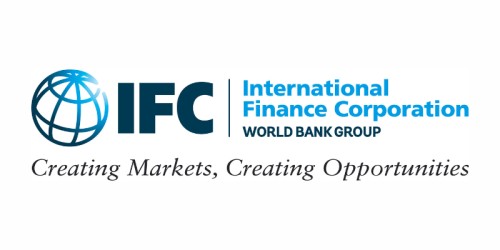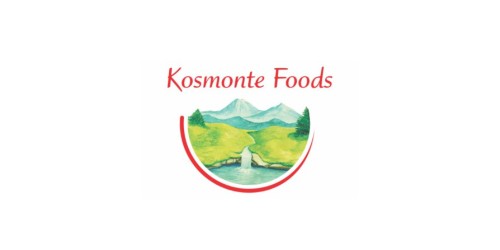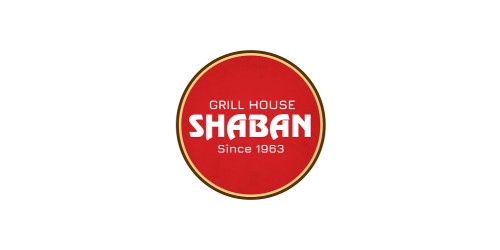
Eco-industrial parks (EIP) pilots in the Western Balkans
TERMS OF REFERENCE FOR STC - Legal Consultant for Eco-Industrial Parks Research in Kosovo
- BACKGROUND
The current electricity mixes in the Western Balkans region (Albania, Bosnia and Herzegovina, Kosovo, North Macedonia, Montenegro, and Serbia, WB6), apart from Albania, are highly dependent on coal undermining the effort of industry decarbonization in the short to medium-term on a systemic level. In 2022, the average share of coal in the electricity generating mix in the WB6, excluding Albania, is estimated to be 69.4%. High dependency on fossil fuels in energy production coupled with low levels of resource and energy efficiency results in high levels of air pollution. In 2021, the region’s average fossil Co2 emissions per unit of GDP was 0.22 tCo2/kUSD, while the EU 27’s equivalent emissions were at the level of 0.14. Albania is the region’s positive outlier, thanks to its hydropower electricity generation. Increasing economic activity within the current energy systems and energy and resource efficiency standards would be undesirable and highly polluting.
Most of the region’s economic growth comes from its entanglement with the EU markets. The WB6's most important foreign trade partner is the EU, with an average share in the WB6's exports of 58%. The region's economic prospects are closely tied to the EU's development efforts as well. Given disruptions in global and European value chains, there's a shift from "just-in-time" to "just-in-case" thinking, making the WB6 region an attractive nearshoring option. The WB6's private sector could use this opportunity and further integrate into the European value chains with improved business models, and environmental and social standards.
An increasing EU regulatory push toward increasingly ESG-oriented import regulations has been evident in recent years. Compliance with the upcoming regulatory requirements from CBAM, CSDD directive and Germany’s Supply Chain Law among others will result in higher costs for EU importers. This trend is expected to be more comprehensive in the future, which in turn will likely result in severe economic consequences for the WB6 region and its private sector’s competitiveness if the region fails to adjust. Furthermore, economies of the Western Balkans region have committed to ambitious climate and energy goals and a regulatory overhaul. The EC Treaty, the EU Green Deal and NDCs provide the main frameworks for the region’s ambitious commitments. Without significant effort in industry decarbonization, these pledges will not come to fruition.
Therefore, the necessity for the adjustment of the production process comes from pledges and targets set out on a policy level, increasingly ESG-oriented export regulations and from the private sector’s desire to stay relevant and competitive in the international surroundings. As the Western Balkan countries seek to increase its industrial output, there is a pressing need to decouple economic growth from environmental and resource inefficiencies to meet wider social objectives. Endemic competitiveness growth in the green market niches in the Western Balkan countries is currently uncertain. By cultivating competitiveness in green market niches, the Western Balkan countries could adapt faster to the green economy transition and enjoy its full benefits.
Traditional industrial parks (IP) are often viewed as hubs of economic and industrial growth. However, besides clear economic benefits, the IPs also tends to produce negative externalities in the form of negative environmental and social impacts. Despite all this, the traditional IPs have the potential to provide short to medium-term solutions to industry decarbonization and mitigation of green transition costs with improved business models. However, the IPs’ transformative potential in the WB6 is impeded by the insufficiently developed regulatory, policy and institutional frameworks and IPs’ capacities to support the industry decarbonization.
For this reason, the concept of Eco-Industrial Parks (EIPs) was developed. EIPs have been proposed as an effective instrument for fostering sustainable industrial growth within the context of the Sustainable Development Goals (SDGs). The EIP provide investors with environments specifically adapted to support the achievement of their social responsibility goals, increase market access to sustainable products, lower exposure to climate change risks and improve competitiveness and job creation.
To address these challenges, the IFC will support the governments in the WB6 region to test and implement the EIP concept and to create a favorable environment for large-scale uptake of this concept in the Western Balkans, and by doing so increase the private sector’s competitiveness, generate FDIs to private/climate business sector and pave the road for high-green growth sectors development in emerging markets.
2. PURPOSE OF THE ASSIGNMENT AND PROPOSED SCOPE OF WORK
The IFC is looking to hire a regulatory expert (Consultant) to provide a regulatory analysis of the Kosovo’s regulatory and policy frameworks relevant to the establishment and operation of industrial parks and the potential introduction of the concept of Eco-industrial parks (EIP). The Consultant should consider the international EIP framework (https://hub.unido.org/eco-industrial-parks-publications) when conducting the analysis. The Consultant will provide a regulatory analysis of the relevant legislation and policy documents concerning the industrial parks’ governance and management, industrial park zoning and land use, incentives schemes, relevant energy, waste and environmental legislations, best practices, labor legislation and stakeholder analysis. The Consultant will combine his/her results into a corresponding diagnostic reports.
More specifically, the Consultant will perform the following tasks:
I. Analysis of the current industrial parks' development and management regulatory framework
The precondition for implementing the Eco-industrial parks’ concept is the properly developed legislation that governs the management of industrial parks, or the rights and obligations of the industrial park’s operators/developers and tenants, providing shared services and other important elements of the industrial parks business model. In that regard, the Consultant shall:
a. Analyze the current legislation concerning the industrial parks' development and management and governance models, including the operation, management and supervision organs, along with provisions about the rights and obligations of the industrial park's operators/developers and tenants and providing shared services (if any).
b. Identify regulatory gaps that hinder the industrial parks operator/developer's further development of their business model (shared services rather than rent-based business model) and the utilization of the full industrial park operators' shared services' potential (e.g., providing utility services with respect to the establishment, use and operation of infrastructure utility facilities within industrial parks, administrative support mechanisms such as 'one- stop shops, and other services that may be provided by park operators/developers with additional responsibilities and/or jurisdictions)
c. Provide clear recommendations for improving the industrial parks’ regulatory framework to enhance their business model, increase the industrial parks’ potential for providing shared services and the introduction of the concept of Eco-industrial parks.
II. Relevant stakeholders' mapping
It is crucial to understand the institutional framework in which industrial parks operate. In that regard, the Consultant will:
a) Mapp the major stakeholders (e.g., government agencies and/or departments, state bodies responsible for the setting of environmental and social standards and the monitoring of companies and industrial park operators’ compliance) and their current roles in industrial park development and management and in setting relevant legislation and public policies.
b) Identify institutional framework's gaps (if any) from the EIP development and management perspective.
III. Industrial parks zoning and land use
a) The Consultant will analyze relevant legislation concerning industrial park zoning, urban and regional planning, expropriation rights and obligations and infrastructure development.
b) The Consultant will recommendations for improving industrial parks' zoning, urban and regional planning, expropriation rights and obligations framework that will ease the adoption of the Eco-industrial park's concept.
IV. Analysis of the national, regional, and local policies and incentives schemes
The Consultant will analyze national, regional, and local policies and incentive schemes that may be applicable to industrial parks (industrial park operators/developers) and their tenants in facilitating the EIP development. The Consultant will analyze the following financial mechanisms and instruments:
a) Financial incentives (direct subsidies, grants and loans);
b) Fiscal incentives (tax holidays and reduced tax rates);
c) Other incentives, including subsidized land, infrastructure and services, as well as various regulatory concessions.
d) Incentives for promoting technological innovation, FDI/exports, and R&D/investments, and
e) Incentives for renewable energy, industrial symbiosis, green buildings, Cleaner Production (CP) or Resource Efficient and Cleaner Production (RECP), and energy savings.
f) Provide recommendations for adjusting the existing incentives scheme and introducing additional financial, fiscal or any other incentives for EIP development taking into account the local circumstances and capacities.
V. Analysis of relevant energy, waste and environmental legislations
The Consultant will analyze the relevant national energy, waste, and environmental legislations to identify barriers to higher utilization of industrial parks' shared services' potential and for the adoption of the EIP concept. In that regard, the Consultant shall analyze:
a) Climate change, energy and resource efficiency, water treatment, wastewater and solid waste treatment, ecosystem services, and Environmental Impact Assessments (EIAs) obligations that may apply to industrial parks (industrial park operators/developers) and their tenants. The special focus will be given to the following potential barriers (if applicable):
i. Reuse of industrial wastewater and solid waste within industrial park premises (wastewater and solid waste legislation tend to forbid the reuse of industrial waste products for any purpose);
ii. Proper treatment and disposal of waste (establishing centralized waste treatment operation in the industrial parks and/or facility for treating or managing and sorting the wastes generated within the park)
iii. Ensuring sustainable levels of water extraction and use
iv. Implementation of circular economy practices
v. Installation of Renewable Energy Systems in the industrial park (e.g., by imposing restrictions on the size of renewable energy (RE) systems that can be installed).
vi. Conducting Environmental Impact Assessments (EIAs) for the entire park
b) The Consultant will provide clear recommendations for resolving the aforementioned potential barriers (if applicable) and other barriers to introducing the EIP concept stemming from the relevant national energy, waste and environmental legislations.
VI. Analysis of the relevant applicable national and local regulations and standards concerning working conditions and human rights
The Consultant will analyze the relevant local and national regulations and other relevant legislation with respect to:
a) Gender equality and women’s and children’s rights
b) Protection of Indigenous people and/or minorities
c) Discrimination
d) Labor laws/regulations (including working hours, OH&S, child labor, and maternity leave)
The Consultant should focus the analysis only on the conditions, criteria, and/or standards put forward by the relevant legislation to the private sector and alignment of those conditions, criteria, and/or standards with international standards and practices.
3. DELIVERABLES
The Consultant will deliver one (1) Final report per following the scope of work described within the Purpose of the assignment and proposed scope of work. The Final report will be in Word format inclusive of source of data presented in the Final report. The Consultant will deliver draft of Final report in a timely manner upon the IFC’s request. Following the receipt of comments from IFC, the Consultant will revise the draft report and send a final version within given time frame, fully addressing all received comments and/or questions. All materials should be provided in English.
Each deliverable should meet the following requirements and be submitted to IFC for approval:
- The deliverable must be submitted on time, according to the TOR.
- The deliverable must be precise, technically correct, and referenced regulations or policies enclosed.
- The deliverable shall be in electronic form submitted by e-mail (electronic files shall be readable without restrictions).
- Report should be written in English language.
The Consultant will be supervised and supported by Igor Matijevic (Senior Operations Officer). The Consultant will provide regular progress updates to the project manager or designated local point of contact. Communication can be through emails, virtual meetings or in person meetings as requested.
4. TIME SCHEDULE
Contract timeline: Effective upon agreement with the consultant until June 30, 2025. IFC estimates a level of effort for the consultant to total of 30 days to be spread throughout the period.
The work will be provided remotely, using email, video conference, and other remote/telecommuting digital means. The payments to the Consultant will be made following the approved deliverables.
The Consultant will submit a timesheet to the Project team, reflecting the actual days' work. For the hours/days unused, the Consultant will not be paid. Payment will be done via a WBG system and will be subject to TTL's clearance.
The deadline for submitting applications is October 28, 2024. All interested candidates with relevant experience should send their CV and cover letter to [email protected] and [email protected]






-thumbnail.jpg)
